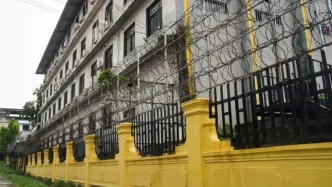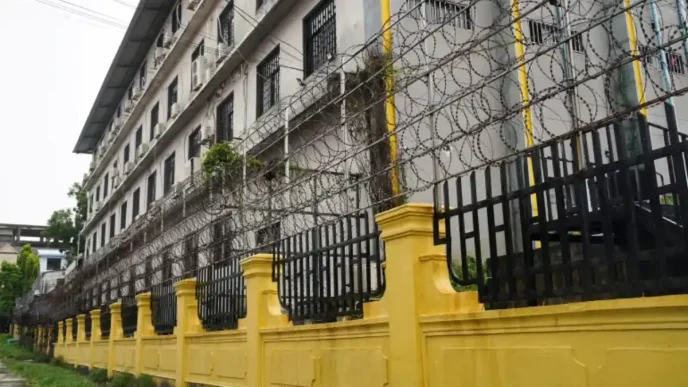In a blow to efforts to reclaim assets allegedly plundered during the dictatorship of Ferdinand Marcos Sr., the Sandiganbayan, the Philippines’ anti-graft court, has dismissed yet another civil forfeiture case. This latest ruling on 18 February 2025, concerning 16 luxury vehicles linked to the Marcos family, marks the ninth known dismissal of such cases since President Ferdinand Marcos Jr. took office in 2022. For the Presidential Commission on Good Government (PCGG), tasked with recovering ill-gotten wealth from the martial law era, this string of legal setbacks raises profound questions about its effectiveness and relevance nearly four decades after its creation.
The dismissal of Civil Case No. 0032, originally filed in 1987, underscores a troubling pattern. The case sought the reconveyance and restitution of vehicles acquired by government photographer Fernando Timbol through his close ties to the Marcoses. Yet, after languishing unresolved for decades, the Sandiganbayan’s Second Division threw it out, citing the government’s failure to act when Imelda Marcos, the sole surviving defendant, did not respond to a 1992 court order. Described by the court as “neglected, forgotten and left pending,” the case met a quiet end last month.
In a statement released on 25 February 2025, coinciding with the 39th anniversary of the Edsa People Power Revolution that ousted Marcos Sr., the PCGG defended its record. It argued that the vehicles had already been recovered and handed over under a Supreme Court writ of execution, rendering the case’s dismissal a formality. “In light of PCGG’s manifestation, the Sandiganbayan dismissed the case against the Marcos spouses,” the commission stated. However, this defence sidesteps a critical point: the case was not solely about recovering assets but also about securing restitution and damages for their allegedly unlawful acquisition.
A Pattern of Dismissals
This defeat is far from an isolated incident. According to the Campaign Against the Return of the Marcoses and Martial Law (Carmma), a civil society group, the dismissal of Civil Case No. 0032 is part of a broader “pattern of the Philippine justice system’s exoneration” of those accused in ill-gotten wealth cases. Since Marcos Jr. assumed the presidency on 30 June 2022, eight other cases have been dismissed by the Sandiganbayan or the Supreme Court. These include a P276-million civil case against the Marcos estate in October 2024, charges involving P2.4 billion in properties linked to alleged dummies of Marcos Sr. in February 2024, and a case concerning the Busuanga Properties in Palawan in February 2023.
In December 2024 alone, the Sandiganbayan issued resolutions dismissing eight separate ill-gotten wealth cases against Marcos Sr., Imelda Marcos, and the late tycoon Eduardo Cojuangco Jr., a known Marcos crony. Earlier, in June 2023, another case against the Marcos heirs was dismissed due to inadmissible evidence presented by the PCGG. Such repeated failures paint a grim picture of an agency once hailed as a beacon of accountability following the 1986 Edsa uprising.
Established by the late President Corazon Aquino under Executive Order No. 1 on 28 February 1986, the PCGG was entrusted with a historic mission to recover assets looted during the Marcos dictatorship, a period marked by widespread corruption and human rights abuses under martial law from 1972 to 1981. Over the decades, the commission claims to have recovered P280 billion in ill-gotten wealth, including Swiss bank deposits, shares of stock, real estate, paintings, and jewellery. Yet, its recent track record in court casts a long shadow over these achievements.
Eroding Public Trust
The implications of these dismissals extend beyond the PCGG’s mandate. Each case thrown out on technicalities or procedural lapses chips away at public confidence in the Philippine justice system. For many Filipinos, particularly those who lived through the martial law era or participated in the Edsa Revolution, these rulings send a disheartening message: wealth and power can still secure impunity, even decades after a regime’s fall. The timing of these dismissals under Marcos Jr.’s administration—whose family directly benefits from such outcomes—only deepens suspicions of political interference or judicial leniency.
Critics argue that the courts must prioritise merit over technicality in resolving these cases. The Sandiganbayan’s focus on procedural errors, such as the failure to pursue a default order in the luxury vehicles case, risks overshadowing the substantive issues of corruption and accountability. Meanwhile, the PCGG’s apparent acquiescence to dismissals, as seen in its lack of objection to the termination of Civil Case No. 0032, suggests a troubling complacency. If the commission continues to falter, questions arise about whether it has outlived its purpose as a guardian of public interest.
Historical Context and Challenges
To understand the PCGG’s struggles, one must consider the broader historical and political context. The Marcos dictatorship, which ruled the Philippines for over two decades, was notorious for systemic corruption. Estimates of the wealth plundered by the Marcos family and their associates range from $5 billion to $10 billion, much of it allegedly stashed in offshore accounts or disguised through shell companies and cronies. The PCGG’s creation in 1986 was a direct response to this legacy, symbolising a national commitment to justice and restitution following the people-powered revolution that restored democracy.
Yet, recovering such wealth has proven an uphill battle. Legal proceedings are inherently slow, especially when defendants like Imelda Marcos employ delaying tactics or when evidence from decades past is deemed inadmissible due to technical issues. Political dynamics further complicate matters. The return of a Marcos to the presidency in 2022, with Ferdinand Marcos Jr. winning a landslide victory, has reignited debates about historical revisionism and the family’s enduring influence. While there is no direct evidence linking the current administration to the recent dismissals, the pattern of outcomes under Marcos Jr.’s tenure invites scrutiny.
Moreover, the PCGG itself has faced internal challenges. Over the years, it has been criticised for mismanagement, lack of resources, and political interference under various administrations. Its mandate, while noble, is constrained by the complexities of prosecuting cases involving powerful figures with access to top-tier legal defence. The agency’s inability to secure convictions or restitution in high-profile cases risks reducing it to a symbolic relic of a bygone era of reform.
A Call for Reform
The string of dismissals highlights the urgent need for reform, both within the PCGG and the broader justice system. For the commission, this could mean a renewed focus on capacity-building, including better legal strategies and coordination with international bodies to trace hidden assets. Injecting new energy into its mission, as some activists suggest, might involve revisiting unresolved cases with fresh evidence or leveraging modern forensic accounting techniques to track ill-gotten wealth.
For the judiciary, the challenge lies in ensuring that cases of historical corruption are adjudicated with the gravity they deserve. Dismissing cases on procedural grounds, while legally valid, undermines the pursuit of justice in the eyes of the public. Greater diligence in handling such cases, free from the shadow of political influence, is essential to restoring trust in institutions like the Sandiganbayan.
Civil society also has a role to play. Groups like Carmma continue to monitor and publicise the outcomes of ill-gotten wealth cases, ensuring that the public remains informed about the state of accountability in the Philippines. Their advocacy serves as a reminder of the stakes involved: beyond the monetary value of recovered assets lies the principle of justice for a nation scarred by authoritarian rule.
As the PCGG marks nearly four decades of existence, its legacy hangs in a precarious balance. On one hand, its past recoveries stand as a testament to the possibility of holding the powerful to account. On the other, its recent failures threaten to overshadow these gains, casting doubt on whether it can—or should—continue in its current form. If the commission cannot reclaim its mandate with renewed vigour, calls to abolish or restructure it may grow louder.
For now, the dismissal of Civil Case No. 0032 and other similar cases serve as a sobering reminder of the challenges of reckoning with historical wrongs. In a country where the scars of martial law remain vivid for many, the pursuit of justice for the Marcos era’s abuses is not merely a legal exercise but a moral imperative. Whether the PCGG and the Philippine justice system can rise to this challenge remains an open question—one that will shape public trust and the nation’s democratic fabric for years to come.














